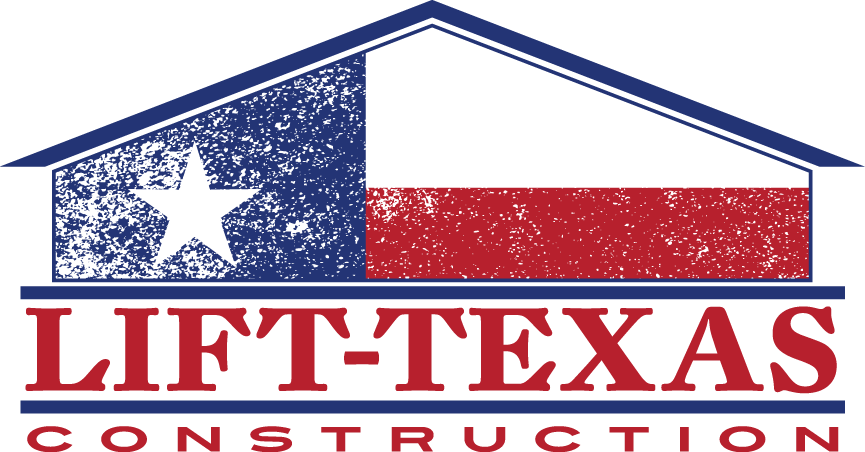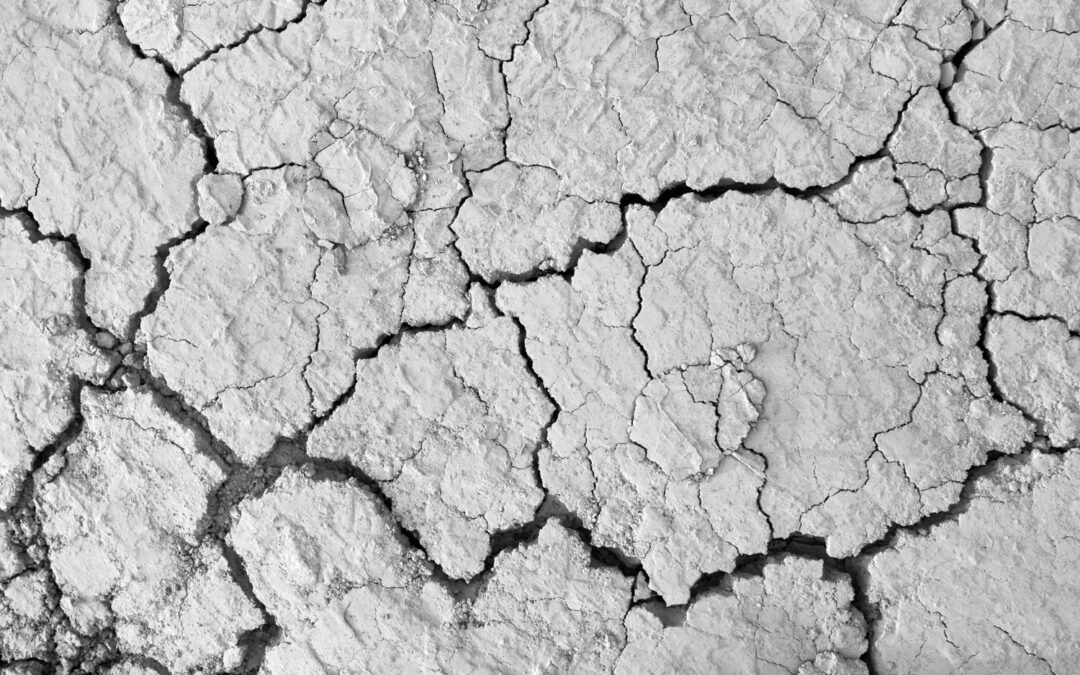If you notice wall cracks, sticking doors, or uneven floors in your Irving home, you’re dealing with foundation movement that requires immediate attention. Irving is built on clay soil that swells when wet and shrinks during droughts. These shifts happen often—especially with Texas weather swinging from dry heat to heavy rain. This comprehensive checklist will help you identify foundation problems early, understand your repair options, and protect your home’s value with lasting solutions.
Recognizing Foundation Warning Signs in Irving Homes
Your home communicates foundation problems through several clear symptoms. Early action can save you thousands—and help you avoid future headaches. Here’s what to watch for:
Interior Warning Signs
Diagonal Wall Cracks: Usually appear above doors, windows, or ceiling corners. These cracks often indicate foundation settlement or upheaval.
Sticking Doors and Windows: Hard-to-close doors can mean your frame has shifted. When door frames become misaligned, the doors may also become misaligned, indicating underlying foundation issues that may be caused by settlement. Binding or sticking doors could be a result of foundation settlement. Doors that swing open or close on their own may be a sign of foundation problems.
Uneven or Sloping Floors: Use a marble or ball—if it rolls, that’s a red flag. If you notice that your floors are sloping or uneven, it could be a sign of foundation settlement or shifting. Walk around your home and pay attention to any noticeable changes in floor level, or areas where the floor feels uneven or bouncy.
Exterior Warning Signs
Foundation Cracks: Look for cracks wider than a pencil or that have a zigzag pattern, as these may indicate significant foundation movement. These fissures are generally known as stair-step cracks.
Gaps Around Window and Door Frames: If you see light or feel air, your foundation may have moved. Foundation issues, water intrusion, and thermal expansion and contraction can cause gaps to form between exterior windows and walls. However, gaps that are between 1/4 and 1/2 of an inch can indicate deeper structural problems and warrant an inspection from a structural engineer.
Brick or Masonry Cracks: Although drywall cracks are a common symptom of different house ailments, cracks in your exterior walls are almost always a foundation issue. Your brick siding can become uneven as the soil shifts under the house and the home adjusts.
Understanding Irving’s Soil Challenges
The soil in Irving mainly consists of expansive Texan clay, which is prone to compacting and causing shifts in the foundation and disturbances below it. Natural events like droughts, earthquakes, hurricanes, flash floods, and other disasters can also affect the soil around foundations. In simple terms, anything that impacts the ground around a house, without proper management, will eventually harm the foundation.
In this part of north/northeast Texas, the soils contain a large percentage of clay. Clay soils are notorious for their ability to absorb water and lift homes, buildings, and foundations as much as nine vertical inches. They are also well known for their ability to lose large volumes of water during hot, dry weather and shrink, creating a void between the concrete slab foundations and the soil.
Foundation Repair Solutions for Irving Homeowners
When foundation problems are confirmed, several proven repair methods are available. Each solution addresses specific types of foundation damage:
Helical Piers: The Engineered Solution
Helical piers are long, extendible, cylindrical support shafts made from non-corrosive galvanized steel. Welded to the shafts are sharpened, curving steel plates (known as helixes), angled to allow progressive ground penetration through machine-driven rotation. Helical piers can be “screwed” into the soil, in other words, going deeper and deeper with each successive turn until the desired depth is achieved.
How Helical Piers Work: Helical piers are used to repair foundations where the load-bearing strata are not easily accessible. The pier can be placed into the ground at the surface level and then reach the load-bearing strata by being rotated. Once the load-bearing strata are reached, a bracket is used to attach the pier to the foundation wall.
Key Benefits:
– Minimal site disturbance: Little soil is displaced during the helical pier installation process, mitigating mess to the surrounding landscape.
– Speedy installation: Multiple helical piers can be inserted by a small team at various spots around a building’s perimeter, often in less than a day.
– Helical piers only require a small crew and can be drilled at a rate of about 10 feet every 5 minutes. And unlike some concrete-based foundation repair methods, they require no curing time. That makes helical piers a great choice if you want a fast foundation repair option.
Push Piers: Maximum Stability
The SettleStop Push Piers operate similarly to helical piers but differ in design and installation. Push piers consist of elongated steel rods pushed into the ground using powerful machinery. These systems transfer your home’s weight to stable soil or bedrock below unstable surface layers.
Interior Waterproofing Systems
For homes experiencing moisture-related foundation issues, interior waterproofing provides comprehensive protection. These systems collect groundwater at the foundation perimeter and direct it to a high-capacity sump pump for reliable moisture control.
Foundation Repair Costs in Irving
Understanding repair costs helps you budget effectively and make informed decisions. The average for foundation repair in Texas is roughly $7,500, but it can vary a lot depending on the techniques and materials used. Small fixes might be $500 to $2,000, while big jobs can be over $10,000.
Cost Factors Include:
– The extent of the foundation damage is the main factor that affects the cost. Small cracks might require simple fixes, while major structural issues demand more labor and materials, increasing the overall expense.
– The type of foundation your house has also plays a role. Slab foundations, for instance, are generally cheaper to repair compared to pier and beam foundations, which can be more complex and require more materials.
– Larger homes generally cost more to repair because they require more materials and labor. The bigger the foundation, the more extensive the repair work.
Typical Repair Ranges:
– Small Cracks: Fixing small cracks in the foundation can cost between $300 and $800. This usually involves filling the cracks with a suitable sealant.
– Foundation Settling or Sinking: Repairing a sinking or settling foundation often involves underpinning or installing piers. The average cost ranges from $1,000 to $3,000 per pier, with total costs often between $10,000 and $20,000 based on the number of piers required.
Getting Accurate Estimates
Before any repair work begins, a professional inspection is necessary. This usually costs between $300 and $600. It ensures that the right repair method is chosen.
Steps for Accurate Pricing:
1. Schedule Multiple Inspections: Contact several reputable foundation repair companies and request detailed quotes. Comparing these can help you understand the average cost and choose the best option.
2. Request Detailed Breakdowns: Request a detailed breakdown of the costs in each quote. This should include labor, materials, permits, and any additional expenses. Detailed estimates help you see exactly where your money is going.
3. Verify Credentials: Ensure the companies you’re considering are licensed, insured, and have good reviews. Checking their credentials helps in avoiding scams and poor-quality work.
Why Choose Professional Foundation Repair in Alvarado, TX Area
When seeking foundation repair services, working with experienced local contractors provides several advantages:
Local Expertise: Irving-based experts understand: … Choosing a local contractor means faster answers, less guesswork, and repairs designed for your neighborhood.
Engineering Approach: Professional foundation repair companies use proven methods backed by structural engineering principles. Helical piers are installed into firm soil to support your home’s foundation, stopping uneven settlement and preventing future cracks.
Lifetime Value: Quality foundation repairs come with comprehensive warranties and lifetime transferable guarantees, providing peace of mind and protecting your investment.
Serving North Texas Communities
Professional foundation repair services extend throughout North Texas, including Tarrant, Dallas, Denton, Collin, and Parker counties. Whether you’re in Fort Worth, Arlington, Plano, or the surrounding areas, experienced contractors understand local soil conditions and building requirements.
It’s required to secure a building permit for Irving foundation repairs. In Irving, TX, the bedrock may go as deep as 23 feet. Working with licensed contractors ensures all permits and engineering requirements are properly handled.
Taking Action: Your Next Steps
Early identification of signs of foundation issues can prevent expensive repairs in the future. It’s crucial to address these problems promptly to avoid any structural damage to your home. Seeking professional advice is recommended to determine the best course of action for your foundation. Take action as soon as you notice any signs to prevent further damage and expenses.
Immediate Actions:
1. Document all visible symptoms with photos
2. Schedule a professional inspection
3. Contact qualified contractors for detailed assessments
4. Compare multiple repair proposals
5. Address urgent issues before they worsen
Frequently Asked Questions
How do I know if my Irving home needs foundation repair?
You may notice that your doors and windows may not close properly. You may also notice foundation cracks, wall cracks, plumbing leaks, and uneven floors, which may require house leveling. If Irving homeowners notice these signs of foundation troubles, call a repair professional immediately to assess the damage. A thorough inspection may yield nothing, but you can be assured that your home is safe and does not require foundation repair. Catching these issues early on will save you a significant amount of money on repairs.
What causes foundation problems in Irving specifically?
Irving, Texas, is a city that has experienced numerous problems with soil movement, foundation damage, and foundation repair. In this part of north-east Texas, the soils contain a large percentage of clay. The constant expansion and contraction of clay soil due to moisture changes puts significant stress on foundations, leading to settlement, upheaval, and cracking.
How long do foundation repairs typically last?
Professional foundation repairs using engineered solutions like helical piers or push piers are designed to provide permanent stability. When properly installed by licensed contractors, these systems transfer your home’s weight to stable soil layers, preventing future movement. Quality repairs come with lifetime transferable warranties, demonstrating the contractor’s confidence in long-term performance.
Can I delay foundation repairs to save money?
A small crack can become a big problem—fast. But when you act early, you save money and avoid bigger issues. Delaying foundation repairs typically leads to more extensive damage and higher costs. Early intervention saves money: Small foundation issues cost much less to fix when caught early. Delaying repairs can result in costs rising exponentially.
Foundation problems in Irving require prompt professional attention due to the area’s challenging clay soil conditions. By following this homeowner checklist, you can identify issues early, understand your repair options, and work with qualified contractors to protect your home’s structural integrity and value. Remember, quality foundation repairs are an investment in your home’s future stability and your family’s safety.

